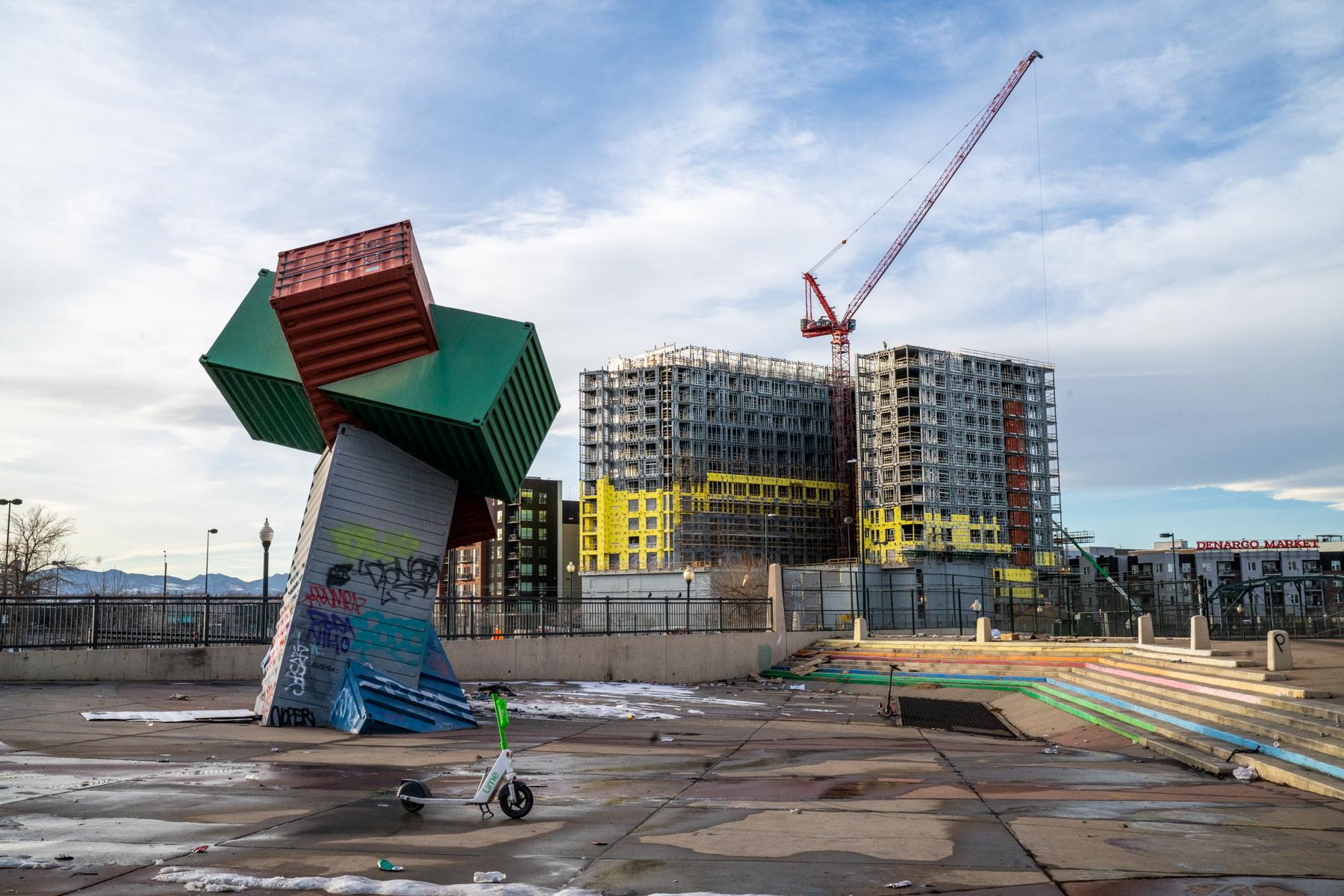Updated 10 a.m., May 21, 2025.
The River North Art District’s self-taxing business improvement district has been officially approved for another 10-year term.
The RiNo Business Improvement District uses property taxes from local commercial property owners to fund services like marketing, infrastructure, beautification and other forms of support for local businesses.
Denver City Council voted unanimously Monday to approve the BID’s second term.
The decision marks the end of a months-long saga surrounding the self-taxing district’s future.
Last November, property owners and business tenants gathered to discuss the shortcomings of the BID and whether they should extend the district, and its higher property tax rates, for another 10 years.
The BID’s biggest naysayers said the property taxes collected weren’t properly spent to support local businesses. Supporters agreed, but said they’re willing to give the BID another chance to restructure.
Ultimately, the BID’s board members voted to ask Denver City Council to approve another decade of its existence.
The BID’s budget for 2025 is $3.5 million. It collects four mills of extra property taxes from commercial property owners in the area, or roughly $1,100 annually on a $1 million commercial property.
The council approved the extension in a 12-0 vote. Councilmember Shontel Lewis was absent from the vote for her son's college graduation.
Supporters and critics alike weighed in on the BID.
Most of the people who attended the city council meeting to comment on the RiNo BID expressed support for renewing it for another ten-year term.
At least one previous critic has since reversed her opinion on the BID renewal. Sonia Danielson knocked the BID last November over what she called an inflated budget and its symbiotic relationship with its affiliated nonprofit, RiNo Art District.
But changes made since then flipped her point of view.
“They have also taken actions to put the ‘business’ back into the ‘business improvement district’ and they will be hiring their own executive director and staff,” Danielson said. “Therefore, I now support the renewal of the RiNo BID.”
Another former critic, Tai Beldock, still called on city council to keep a close eye on the BID as the entity that holds it accountable.
Adam Larkey, who is serving as an interim co-director of the RiNo Arts District, said the BID still has a lot of work to do.
“Looking forward, our priorities are projects like the 38th Street underpass, further improving connectivity within the neighborhood, expanding the No Vacancy program, and greater cooperation with surrounding neighborhood organizations are at the top of our list,” Larkey said.
Restructuring has already started.
The BID was established in 2015, when River North was a relatively new name for a stretch of Brighton Boulevard and surrounding blocks in northeast Denver. Developers were just starting to seed the formerly industrial area with new apartments, breweries and businesses.
Today, it’s a far different situation. The city has completed major infrastructure projects, including a rebuild of Brighton, and the area’s population has exploded with the development of apartment blocks and towers.
After last year’s debate, RiNo leaders have already gotten started on restructuring the organization.
The nonprofit RiNo Art District receives a portion of its budget from property tax dollars collected by the BID and uses the money to support events and art initiatives. It is in the process of finding new leaders. Alye Sharp and Sarah Cawrse, the nonprofit’s two co-executive directors, both left the organization this year.
While the organization searches for replacements, Larkey, the former chair of the RiNo BID, will serve as one of the interim directors.
Representatives of the BID said it has already adopted a new operating model that will “help streamline operations and increase transparency moving forward.”
Under the new model, the BID will employ its own staff instead of sharing staff with the RiNo Art District nonprofit, as it has done in the past.
Editor's note: This article was updated to note the reason for Lewis' absence.












